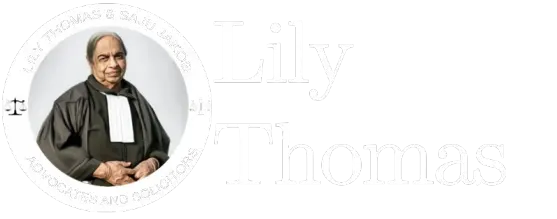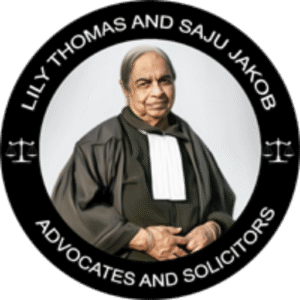Case Title:- REJANISH K.V. Vs K. DEEPA AND OTHERS
Citation:- 2025 INSC 1208
Date:- 09.10.2025
Hon’ble Supreme Court Bench :- CHIEF JUSTICE OF INDIA B.R. GAVAI, JUSTICE ARAVIND KUMAR, JUSTICE SATISH CHANDRA SHARMA, JUSTICE K. VINOD CHANDRAN & JUSTICE M. M. SUNDRESH.
The Hon’ble Supreme Court Constitution Bench, in a landmark ruling, held that in-service judicial officers with a combined experience of seven years as an advocate and/or judicial officer are eligible for direct recruitment to the post of District Judge. The judgment, delivered by a five judge bench headed by Chief Justice of India BR Gavai and comprising Justices MM Sundresh, Aravind Kumar, SC Sharma, and K Vinod Chandran, also overruled the 2020 judgment in Dheeraj Mor v. High Court of Delhi which restricted direct recruitment to practising advocates only. The decision applies prospectively, and does not affect appointments or processes completed prior to this ruling.
The Constitution bench was constituted after the 3-judge bench of Chief Justice of India BR Gavai, Justice K Vinod Chandran and Justice NV Anjaria passed an order on August 12, referring the matter to a larger bench.
The four main issues considered by the bench are :
- Whether a judicial officer who has already completed seven years in Bar being recruited for subordinate judicial services would be entitled for appointment as Additional District Judge against the Bar vacancy?
- Whether the eligibility for appointment as a District Judge is to be seen only at the time of appointment or at the time of application or both?
- Whether there is any eligibility prescribed for a person already in the judicial service of the Union or State under Article 233(2) of the Constitution of India for being appointed as District Judge?
- Whether a person who has been Civil Judge for a period of seven years or has been an Advocate and Civil Judge for a combined period of seven years or more than seven years would be eligible for appointment as District Judge under Article 233 of the Constitution of India?
Background of the Case:
The case arose when Rejanish KV, a practising lawyer with seven years of Bar experience, applied for direct recruitment as a District Judge while simultaneously being selected as a Munsiff/Magistrate in December 2017. After receiving the District Judge appointment order, he was relieved from the subordinate judiciary and took charge in August 2019. Another candidate, K. Deepa, challenged his appointment in Hon’ble Kerala High Court, arguing that he was not a practising advocate at the time and was serving as a judicial officer, relying on the Hon’ble Supreme Court’s ruling in Dheeraj Mor v. High Court of Delhi, which held that advocates must continue practising until the date of appointment. The Single Bench allowed the writ petition; however, the Division Bench, while upholding the decision, observed that numerous appointments across the country may have been made under state rules inconsistent with Dheeraj Mor. Recognizing that the matter involved substantial questions of law of general importance, the Division Bench granted certification to appeal before the Hon’ble Supreme Court. In 2021, the Hon’ble Supreme Court stayed the Hon’ble High Court judgment, paving the way for a reconsideration of the eligibility of in-service judicial officers with prior Bar experience for direct recruitment under Article 233.
Arguments by the Parties
The hearing in this matter continued for 3 days where the Petitioners sought reconsideration of Dheeraj Mor ruling, which held that civil judges cannot apply for direct recruitment under the bar quota. They argued that the phrase “A person not already in service of the Union or of the State shall only be eligible” should not exclude judicial officers. Petitioners emphasized that the 7-year practice rule under Article 233(2) should be cumulative, not continuous, counting experience as an advocate and/or judicial officer.
Respondents contended that Article 233(2) applies only to practising advocates, excluding in-service judicial officers. They relied on stare decisis, noting that this restrictive interpretation had prevailed for over 60 years. Respondents maintained that the 7-year practice must be continuous, in line with prior rulings.
Court Ruling:
The hearing essentially focused on whether judicial officers with prior Bar experience should be allowed to compete for direct recruitment to District Judge posts. There were two judgments- by CJI Gavai and Justice Sundresh- both concurring.
The Hon’ble Court held :
- Judicial Officers who have already completed seven years in Bar before they were recruited in the subordinate judicial service would be entitled for being appointed as a District Judge/Additional District Judge in the selection process for the post of District Judges in the direct recruitment process;
- The eligibility for appointment as a District Judge/Additional District Judge is to be seen at the time of application;
- Though there is no eligibility prescribed under Article 233(2) for a person already in judicial service of the Union or of the State for being appointed as District Judge, in order to provide a level playing field, we direct that a candidate applying as an in-service candidate should have seven years’ combined experience as a Judicial Officer and an advocate;
- A person who has been or who is in judicial service and has a combined experience of seven years or more as an advocate or a Judicial Officer would be eligible for being considered and appointed as a District Judge/Additional District Judge under Article 233 of the Constitution;
- In order to ensure level playing field, we further direct that the minimum age for being considered and appointed as a District Judge/Additional District Judge for both advocates and Judicial Officers would be 35 years of age as on the date of application.
- It is held that the view taken in the judgments of this Court right from Satya Narain Singh till Dheeraj Mor (supra), which take a view contrary to what has been held hereinabove do not lay down the correct proposition of law.
Further, the Hon’ble Court clarified that:
- Only candidates with continuous experience as an advocate/pleader (including Government Pleaders and Public Prosecutors) or as a judicial officer, or a combination of both, on the date of application, are eligible for direct recruitment. Breaks in practice are not counted, as discontinuity may create a disconnect with the legal profession.
- The plea for a 25% quota exclusively for practising advocates under Article 233(2) is not considered as, it will amount to providing a “quota” for the advocates having seven years’ practice. A plain and literal reading of Article 233(2) does not contemplate such a situation.
- Young, talented, and meritorious judicial officers should not be denied an opportunity to compete. The experience gained as a judicial officer is greater than that of a practising advocate, supplemented by at least one year of rigorous training.
- Judicial officers should have equal opportunity to compete with advocates having seven years’ practice for direct recruitment to District Judge posts.
- The primary objective of recruitment to public service is to secure the best and most suitable candidates for the role.
- Article 233 should be read as a whole, not sub-articles independently. A purposive interpretation enhancing efficiency and attracting meritorious candidates should be preferred over a literal or pedantic reading
Conclusion:
The Hon’ble Supreme Court Constitution Bench held that a judicial officer, who has a combined experience of seven years as a judicial officer and an advocate, is eligible to apply for direct appointment as a District Judge. The eligibility will be seen as on the date of the application. To ensure a level playing field, the Hon’ble Court held that the minimum age of the in-service candidates applying for District Judges’ direct recruitment must be 35 years. The Hon’ble Court held that the state governments will have to frame rules providing eligibility for in-service candidates. The rules should provide that in-service candidates should be eligible if they have a combined experience of 7 years as a judicial officer and advocate. The judgment in Dheeraj Mor which held that in-service candidates cannot seek direct recruitment as District Judges was overruled. The judgment will only apply prospectively from today, and won’t affect processes already completed or appointments already made.




